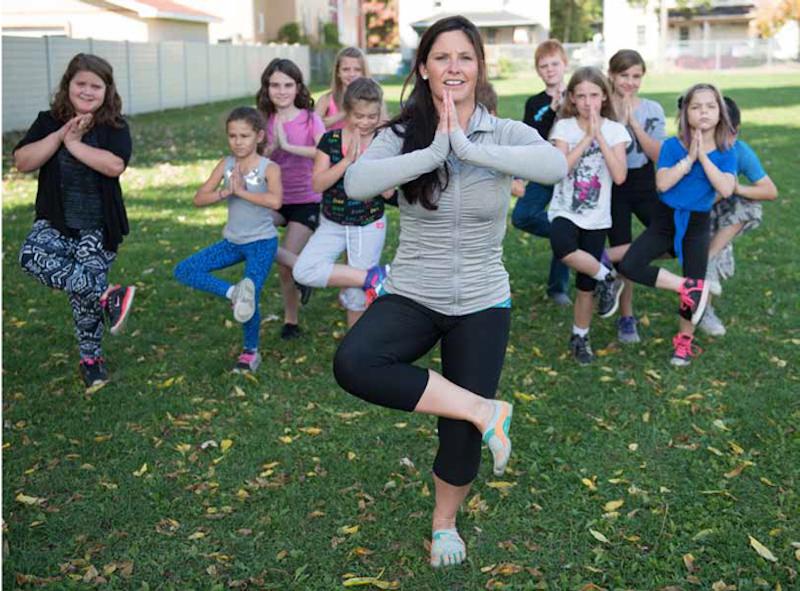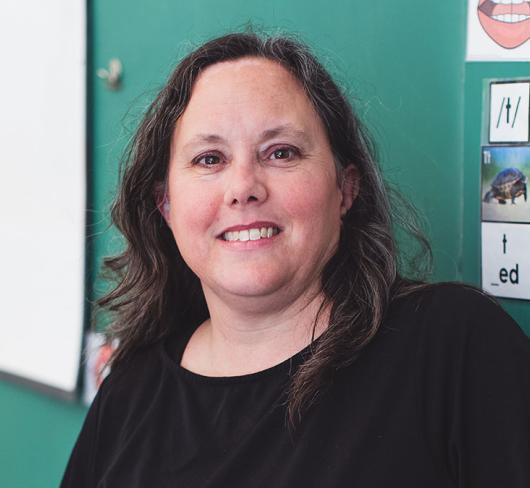
Teachers as Mentors: Encouraging Self-Worth Through Positive Relationships
By the end of September my frustration with one of my students had risen to the point that I no longer knew what to do or how to get through to her. I tried turning a blind eye to her distracting behaviours. I avoided arguing with her when she refused to do her work or hand in assignments and I stopped calling home because I never got a call back. From the minute this student arrived at school she looked distracted – even sad – and it became quickly evident that learning or succeeding academically were not priorities. I discussed my concerns about this student with colleagues and sought suggestions as to what I should do. I contacted community agencies, modified my lessons to better suit her needs and interests and tried to help her make friends in class.
By the end of October it became clear that nothing was working and I still had not identified the underlying problem for this student, who showed true potential but did not seem to care about anything – especially school. It was one day at lunch when she saw me running laps around the schoolyard that everything changed. She asked me what I was doing. When I explained to her that I love to exercise at lunch, I asked her to join me. To my surprise, she was quick to take my side. We did not talk about school. I did not ask her how she was feeling. I did not scorn her for not having done her homework. Instead, when the bell rang, I thanked her for joining me, told her how much I enjoyed having someone to exercise with and invited her to join me again the following day at lunch. That day changed a lot, not only for her, but for me as well. She gained someone who believed in her and cared about her, and I gained a student who was more productive, determined and goal-oriented. It was the beginning of a positive and lasting relationship.
Her story is not unique. Many students come to school simply because they have to and not because they want to, and for these students, learning and succeeding are the farthest things from their minds. We are often told that to be effective teachers we need to understand the needs and interests of each individual student and are expected to differentiate our instruction accordingly. However, as educators we are seldom provided with the extensive or complex backgrounds of our students. We are more likely to be provided with how they perform academically from year to year. Based on my experience, understanding their academic needs is not enough. We must recognize their personal and social needs as well.
When children come to school on an empty stomach or having just witnessed an argument between their parents, or been told that they are worthless by a sibling or are worrying about whether someone will be home after school to let them into the house, we can hardly expect that their focus will be on how to write a compound sentence or pass a science test. It does not matter how hard we push, the incentives we provide or the consequences we give them; what they need is for someone to care about them and their personal well-being. This does not mean that as educators we have to spend our day doing social work. It means that it is important that we take the time to recognize and take a personal interest in students who may be experiencing difficult situations or unhealthy relationships, and who might benefit from having a positive role model who believes in them and encourages them to succeed, not only at school but in life. Students without positive relationships in their lives may lack self-confidence and self-worth. They often carry the attitude that they cannot succeed at anything and tend to give up on themselves.
Positive self-esteem is enhanced by feeling accepted by people whose relationship a student values. Whether it is a parent, a custodian, a principal or a teacher, anyone students feel they can trust and whose opinions they respect can help them assign value to their achievements and recognize their true abilities. Teaching students to take responsibility and make decisions and providing them with a sense of comfort will aid in developing their self-efficacy and help them believe in themselves and their future. For many students, this is not a reality in their home environment and thus, as educators, it is important that we provide a secure and safe space in which students can express themselves freely, take risks, make mistakes and feel valued. Increased success at school is inevitable when students have at least one positive mentoring relationship in their lives. They will strive to please that person, resulting in their trying to meet his or her expectations, both academically and behaviourally.
While to some educators this may seem like a lot of extra work on top of what we are already expected to do, developing a positive relationship with a student in need can be easy and require as much or as little time as you would like. Simply asking a student on a regular basis how they did on a test, to walk with you while you are on duty or to join you for lunch can lay the foundation for a relationship to grow naturally.
Recognizing that it is impossible to take a personal interest in every student, it is important to seek out those who would benefit most from extra attention. For example, two years ago our principal recognized that there was a large percentage of high-need students and asked all teachers to identify those they thought could benefit from having a teacher mentor. We were then encouraged at a staff meeting to write our name beside two or three students who were not in our class
and to make an effort to develop a positive relationship with those students by taking a personal interest in their well-being. The program was not compulsory, but many teachers participated. We have continued to operate the program every year.
It is up to the teachers how and when we choose to spend that little bit of extra time with a student, and for the teachers at my school, it has proven to be quite easy to find the time. For most, it was simply a matter of inviting the students to join them in doing something that they enjoy doing or are passionate about. For example, there was one teacher who was especially creative and loved to do arts and crafts, so she would invite certain students to join her at lunch or at recess and together they would get crafty. There was another teacher who loved to play chess so she would invite a couple of students at different times and challenge them to a game. Teachers have found it easier than anticipated to participate, as a positive relationship between a teacher and a student is inevitable when the two have the opportunity to get to know one another as people.
My two passions in life are teaching and fitness, and nothing has been more satisfying than being able to combine them both and share something of who I am with the students in my school. I run a yoga/fitness club not just for the students, but for myself too. It allows me to get to know the students better and allows the students to see me as someone other than their teacher or their friend’s teacher. The benefits of daily physical fitness for children have been well researched and proven in a multiplicity of studies. Not only does physical fitness help to develop self-confidence and positive self-esteem, but for students with high needs, it provides an outlet to burn off energy, let go of their frustrations, take a break from the academic pressure felt in the classroom and be in an environment where they have more control and fewer expectations. For some students, yoga/fitness club is the reason for coming to school and for others it is the relationship that they develop with me that gives them the motivation to want to succeed in class. For all of them, yoga/fitness club is a safe and secure environment where there is someone they can trust, someone they respect and someone who believes in them and their future.
The benefits of having positive relationships in our lives are undeniable, but unfortunately not all students in our schools are fortunate enough to have such relationships in their lives. As teachers, we have the opportunity to develop mentoring relationships with students who need them as we spend a great deal of time at school each week. Although the majority of our time is spent teaching, it only takes a minute to show students that we care not only about their academic success, but also their personal well-being.
As educators we have the opportunity to create change and touch lives. Realistically we cannot help or be there for each and every child that goes through the system, but for every one that we can open up to and share ourselves with, and for every positive relationship that we can build, we as educators are making a difference.
Ashley Armstrong is a member of the Upper Canada Teacher Local.

